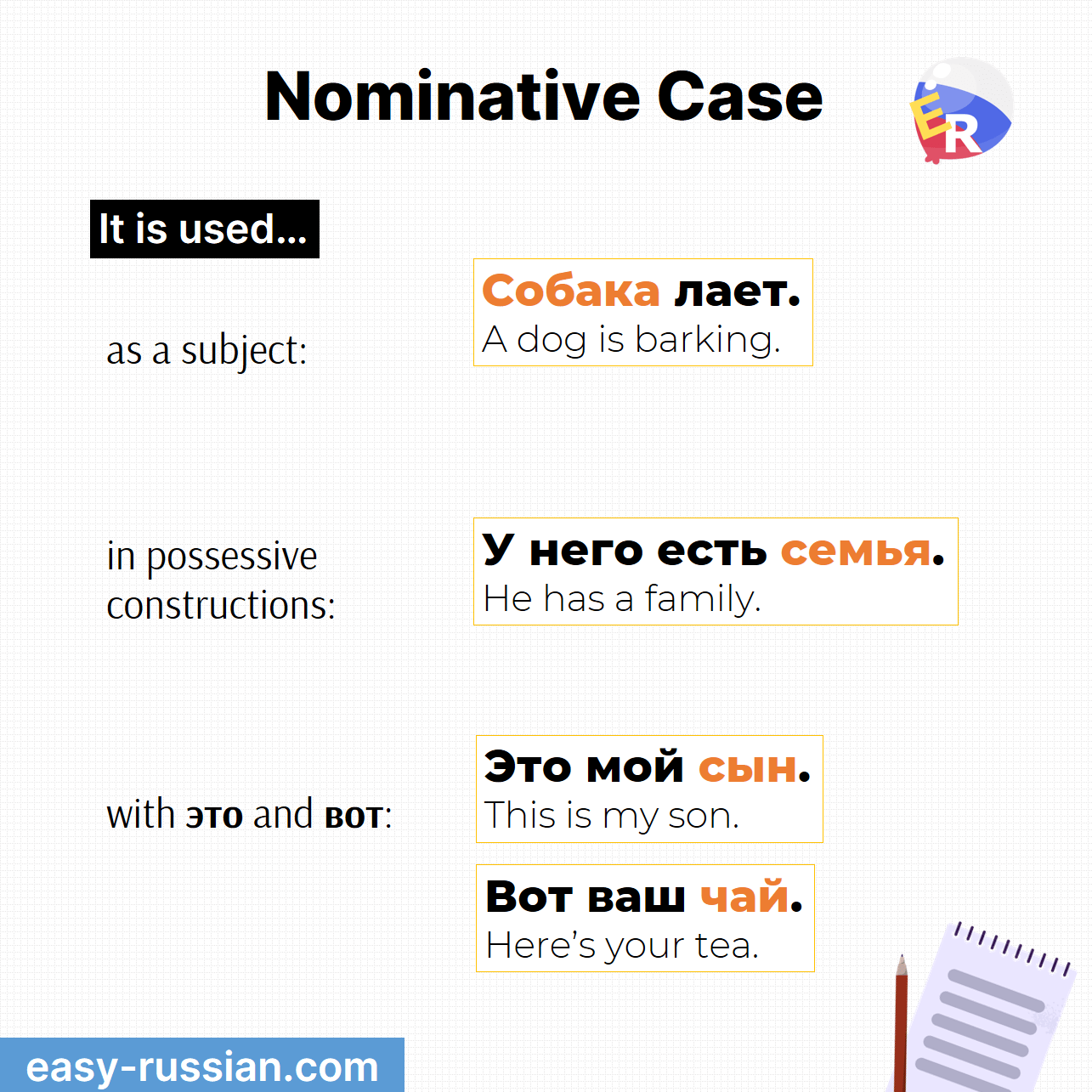The Nominative Case: When do We Use It
The nominative case (именительный падеж) is the easiest one in the Russian language. It expresses an independent position of a noun in a sentence. It answers the questions Кто? or Что? (Who?/What?). In Russian dictionaries, all nouns are given in the nominative case. It’s actually the basic form of a noun.
But when do we use it? Here are the examples.
1. Subject in a sentence
We take the subject word right from the dictionary. We don’t choose it at all.
Examples:
Автобус опоздал. – The bus was late.
Мальчик играет с игрушечным грузовиком. – A boy is playing with a toy truck.
Меня укусил щенок. – I was bitten by a puppy.
So, every subject in a sentence is in the nominative case.
2. In possessive constructions
When you say what you or someone else has, you use the nominative case.
У меня есть брат. – I have a brother.
У него есть дочь. – He has a daughter.
У них есть машина. – They have a car.
У тебя большой дом. – You have a big house.
3. In “это” and “вот” phrases
If you introduce something using the words “это” or “вот“, you use what? You guessed it.
Это мой друг. – This is my friend.
Это хорошее лекарство. – This is a good medicine.
Вот твои документы. – Here are your documents.
Вот его дом. – Here is his house.

4. In definitions
Собака – друг человека. – A dog is a friend of man.
Вода – важный источник жизни. – Water is an important source of life.
5. As a predicative
Examples:
Она студентка. – She’s a student.
Моя мама – учитель. – My mother is a teacher.
I hope it was useful for you. If you have any questions, leave a comment below.
